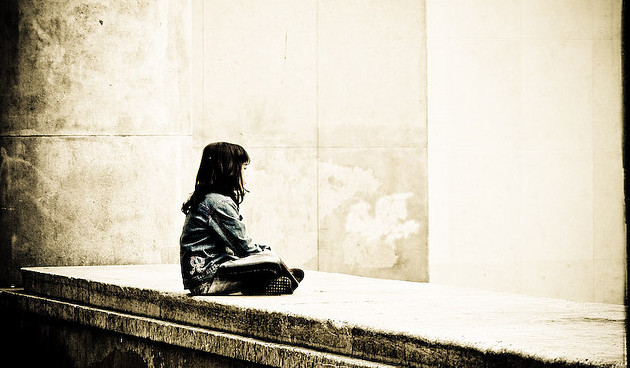Yesterday, an eleventh-grade boy from the high school next door to my kids’ elementary school took his own life in his dorm room. The word “tragic” doesn’t even touch this situation.
As a mother, I see myself as a gatekeeper of my children’s innocence. I do my best to protect them, body, mind, and soul. But life has a way of incessantly usurping my control over the content to which they are exposed, and therefore interfering with my plans to raise perfectly adjusted, perpetually hopeful, and faith-filled little Jewish people. In my few short years as a parent of actual children, I’ve learned that—try as I might to protect my kids from scary things—scary things find us anyway.
Suicide was something I thought I could protect them from knowing about . . . for a while, at least. The idea that someone could be so racked with pain and sadness, and feel so alone, that he could take his own life—I didn’t want them to know that that was even possible. But now they know, and now we have to deal with what that knowing means for them and for us.
I regularly buy into the illusion that I am in control of the events of my kids’ lives. Regrettably, I am not. What I do have a measure of control over is my reaction to the things that they learn. I can choose to be present for them, and to provide open lines of communication when they have questions. And I can be honest enough when asked, “Mommy, why didn’t G‑d send someone into his room and save him?” to say, “Baby, I don’t know.”
I think there is an underlying notion that parents are supposed to intuitively know how to respond to their kids at all times. And that our faith in G‑d and His mercy must appear ironclad lest, G‑d forbid, our children raise questions to which we have no answers (gasp!). Well, folks, I’m here to tell ya’ that my faith does take a hit from time to time, and there’s a lot I don’t and never will know. But in spite of that, I push forward. I choose to trust G‑d anyway.
So many of us, parents and teachers alike, have bought into the ridiculous idea that if we don’t know something, we can’t be effective role models. There is a prevalent tendency to steer away from—or worse, ignore—sensitive subject matter because we simply don’t know what to say. But that’s not an honest way to parent; heck, that’s not an honest way to live.
Everybody has questions about G‑d’s will; even our greatest Jewish leaders did.
In Genesis, before the destruction of Sedom, our forefather Abraham challenges G‑d’s will:
“Far be it from You to do a thing such as this, to put to death the righteous with the wicked, so that the righteous should be like the wicked. Far be it from You! Will the Judge of the entire earth not perform justice?” (18:25)
In the book of Exodus, “Moses returned to G‑d and said: ‘My G‑d, why have You done evil to this people? Why have You sent me? For since I came to Pharaoh to speak in Your name, he has done worse to this nation; and You have not saved Your people!’” (5:22–23)
Abraham and Moses were true believers. And they had something we could all use a bit of . . . holy chutzpah. They understood without question that everything that happens in this world is ordained by G‑d. And they trusted unequivocally that everything that G‑d does is for good.
Abraham, Moses, you and me were created as free thinkers with free wills. So when our forefathers questioned G‑d, it was not a crisis of faith. It was not blasphemy. It was a relationship. They were secure enough in G‑d’s supremacy, and in His mercy, that they went head to head with His will. They made their arguments, voiced their complaints and awaited His verdict. They were comfortable enough in their relationship with G‑d that even if He said “no,” they would continue being the men they were intended to be.
I don’t have the benefit of direct dial with G‑d, like our prophets did. But I can defer to my own wireless connection with Him, and confirm that even when I am outraged about some horror that has befallen the world, although I am in pain, I will still say, “Baruch Dayan Ha-Emet—Blessed is the True Judge.”
My outrage speaks of my connection with G‑d and my trust in Him. It means that I haven’t given up on Him, even when I don’t understand Him. That’s a lesson our kids need to hear.
Originally published on chabad.org…under the name “Holy Chutzpa”
